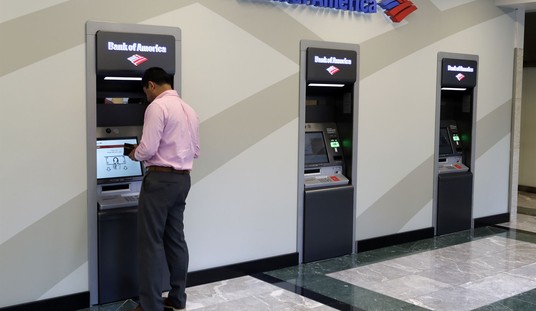For better and for worse, governments assert their participation in the language of commerce. Recently, an intriguing undercurrent has begun shifting the very substance of currency. As consumers, employers and taxpayers, I believe that we should be paying attention to recent evolutions. For context, let’s first visit the concept of money.
Money is stored value. It may represent work performed, products built or property sold. It may be earned, inherited, accumulated or stolen. But regardless of its source, money is the generally accepted units of measure that symbolize the abstraction of worth. The greatest utility of money is its ability to transfer the possession of value between people or organizations.
With voluntary purchase transactions, the buyer values the product or service more than the money that he/she has agreed to pay. Concurrently, the seller values the money being received more than the product or service that he/she is delivering. In the natural law of commercial negotiations, the buyer and the seller both come out ahead. This is the basis for a free market economy.
The idea of money seems to have arrived naturally enough among humans in every culture. Early on, precious metals were used because of their intrinsic value. A rancher may barter four pounds of vegetables from the farmer in exchange for one pound of meat. A painter also needs food, but the farmer and rancher may have no desire for artwork. So if the artist sells one painting to a physician for five silver coins, she would have the capacity to exchange one coin with the farmer for one pound of vegetables and four coins with the rancher for one pound of meat.
Recommended
Silver and gold have been globally popular as the raw material for coins. Both are attractive, useful, and noble elements in limited supply. Other metals have been assigned value as coins. But their value comes as declared by the government that issued them. And that may only be recognized within the borders of the issuing country.
China advanced our modern concepts of money during the Tenth Century. The Song Dynasty promoted copper, bronze and lead coins to be used as currency within China. This was a significant transition from trading with precious metals of intrinsic value. “Chinese philosophers and statesmen … have universally asserted that money is an artifact of the supreme ruling authority. It is the ruler’s stamp, not the intrinsic value of the monetary medium, that confers value.” – from The Origins of Value, Page 66.
Not surprisingly then, it was also the Chinese who introduced paper money, vividly named “flying cash.” Because the value of currency was what the ruling dynasty claimed that it was, paper money was just as valid as lead coins for legal tender. For nearly 100 years, paper money in the United States was backed by precious metals and even redeemable for silver coins or silver bullion in order to substantiate its value. Printed on every bill were the words, “The federal reserve bank … will pay to the bearer on demand.” Later, paper bills were issued with the statement, “This certifies that there is on deposit in the Treasury of the United States of America One Dollar payable to the bearer on demand.”
In 1971, President Richard Nixon took the U.S. dollar off of the gold standard, backed by all those bricks in Fort Knox. This “temporary measure” was taken as a vehicle to devalue the dollar by about 8% relative to international currencies. But one devaluation led to another and yet another. And in 1976, the federal government officially removed all references of gold from statutes that defined the dollar. While the assertion remains on every U.S. bill that, “This note is legal tender for all debts public or private,” American paper currency is now pure fiat money.
Pretending that paper carries the value of gold and silver paved the way for us to pretend the same thing about the number in our personal bank accounts. We went digital a long time ago, which means that most of the money that passes between people, stores, and banks is a system of networked arithmetic. And frankly, I like it.
Electronic connectivity in the 24-hour money exchange cycle opens the door for creativity from private industry. Remember S&H Green Stamps? They were an early example of what we now call customer loyalty programs. You can still redeem your old Green Stamps, by the way (click HERE). Loyalty programs have become big business because the issuing companies carry them as liabilities. A new trend of swapping and selling points has elevated loyalty programs to the level of dollar credit.
But that is nothing compared to the emergence of a parallel system of currency known as Bitcoin. Bitcoin is a cooperative system of virtual money used to buy and sell items via the World Wide Web. Invented in Japan, Bitcoin knows no borders and has become popular by nontraditional shoppers and is even recognized by some stores in the U.S. So far, the Feds do not allow American banks to recognize Bitcoins. But that toothpaste will be difficult to get back in the tube, based on the Fed’s actions of the past fifty years. As Wall Street Journal’s Jason Bellini describes it, “The only thing that gives Bitcoin their value is people believing they have value.”

























Join the conversation as a VIP Member